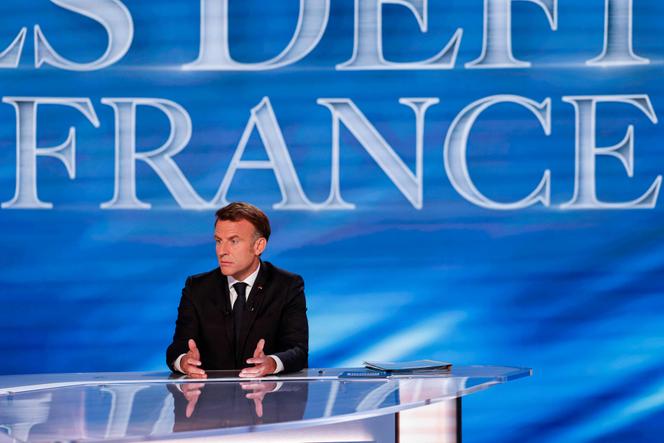


The problem with presidential speeches filled with promises is that expectations are often disappointed. For several days, his communications advisers had hinted at the imminent announcement of a referendum, but, on the evening of May 13, Emmanuel Macron, speaking on the television channel TF1, refrained from committing to such a path. Pressed by journalist Gilles Bouleau to end the suspense, after two and a half hours of discussion during a special program entitled Emmanuel Macron – The Challenges for France, he only mentioned the possibility of "several referendums at the same time in the coming months." He avoided committing "too precisely" to either the subjects that could lead to a referendum or a prospective date.
Several themes for a referendum had, however, been floated by the Elysée in recent days, notably issues around assisted dying and end-of-life care, which are the subjects of bills currently being discussed in the Assemblée Nationale. "If, after the first reading, there is a deadlock (...) the referendum can be a way to unblock it," said Macron on Tuesday evening, after listening to a plea by former journalist Charles Biétry, who suffers from amyotrophic lateral sclerosis (ALS, or Charcot's disease). "Whenever we are too slow or blocked by the political situation, we can call a referendum," Macron added, all while urging political parties in Parliament to "work together."
You have 83.23% of this article left to read. The rest is for subscribers only.
